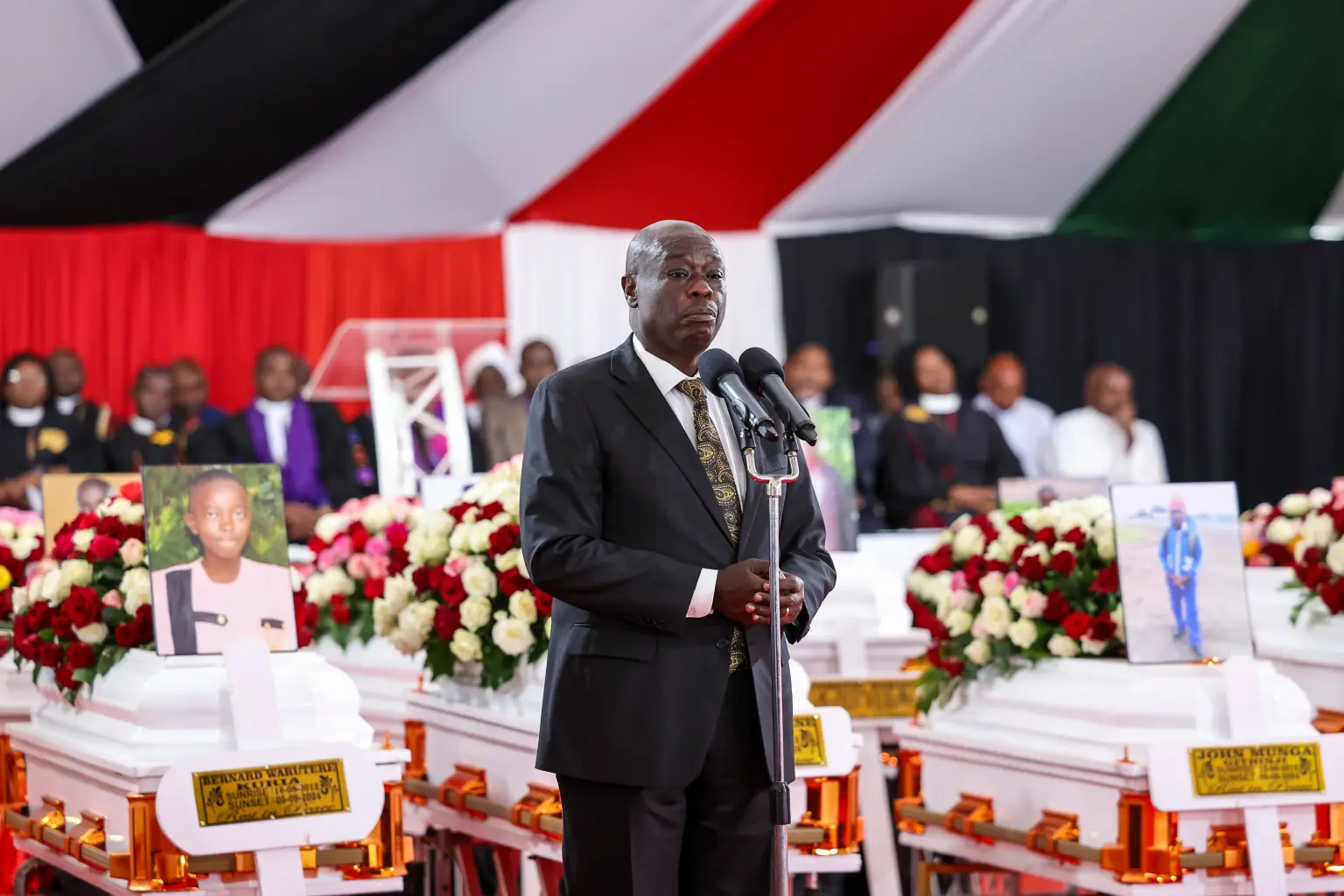The Senate of Kenya (Upper Chamber of Parliament) approved this Thursday the dismissal of the vice president of the country, Rigathi Gachagua, an unprecedented act in the history of the African country.
After two days of impeachment, the senators voted in favor of the impeachment (as the impeachment process is known in English) against the vice president, who could not defend himself in person before the parliamentarians because he was admitted to a hospital in Nairobi for intense chest pains.
How was the motion for the dismissal of the vice president of Kenya?
The motion had to be supported by at least two-thirds (45) of the 67 members of the Senate who supported at least one of the eleven charges that weighed on Gachagua.
Thus, 45 senators or more voted in favor of five of the eleven charges, which included corruption, promotion of ethnic discrimination, insubordination, intimidation and humiliation towards public officials.
“As a result, his Excellency Rigathi Gachagua ceases to hold office,” said the president of the Upper House, Amason Kingi.
But the vice president also received the express support of some senators.
“This divorce that the president is looking for, he will get it. But it will be painful, harmful, catastrophic, it will have victims,” said legislator John Methu in reference to Kenyan President William Ruto, whose relationship with Gachagua had been rarefied for months.
On the 8th, the National Assembly (Lower House) already expressed itself in favor of the process of dismissal of Gachagua, 59 years old.
The dismissal ends his political career – he has been vice president since 2022 and, from 2017 to 2022, he was a deputy of the Assembly – since he will not be able to occupy any other public office in the future and, in addition, he will lose all the benefits derived from having held the vice presidency of Kenya.
Sudden hospitalization of Gachagua
The vote culminated in a dramatic day marked by the sudden hospitalization of the dismissed vice president, who is “stable,” according to doctors, adding that he will remain under observation between 48 and 72 hours.
“It came with chest pains and when you get to the hospital with that, our first concern is if it has something to do with the heart and our job is to make sure that you don’t have the possibility of suffering a heart attack,” Karen Hospital’s chief cardiologist Dancan Gikonyo told reporters.
The setback caused the temporary suspension of the session in the Upper House, which resumed the impeachment shortly after 17:00 local time (14:00 GMT).
The session, the second debate in the Senate after the one held this Wednesday, was resumed after a request from Gachagua’s lawyer, Paul Muite.
Muite asked for a postponement of the impeachment until next Tuesday, so that the vice president could stand in person and defend himself before the Senate, but the president of the Upper House, Amason Kingi, pointed to this Saturday as an alternative date.
However, the senators refused in a vote to postpone the process until Saturday and decided to continue this Thursday, before which Muite and his legal team withdrew in protest.
The procedure with green light
The procedure already received the green light on October 8 with a large majority in the National Assembly (Lower House), where 281 of the 349 deputies voted to move forward, after a marathon session in which the vice president intervened.
“In the absence of an active investigation by any Kenyan investigative agency, I believe that there can be no serious reason to believe that I have committed any crime,” Gachagua said at the time, denying all the accusations against him.
The debate in the Senate could begin this Wednesday after two courts rejected urgent appeals imposed by the vice president to stop the process.
According to local media, Vice President Gachagua has filed up to 26 lawsuits challenging the legality and the process of his dismissal.
One of the main arguments against impeachment is the lack of significant public participation.
































































